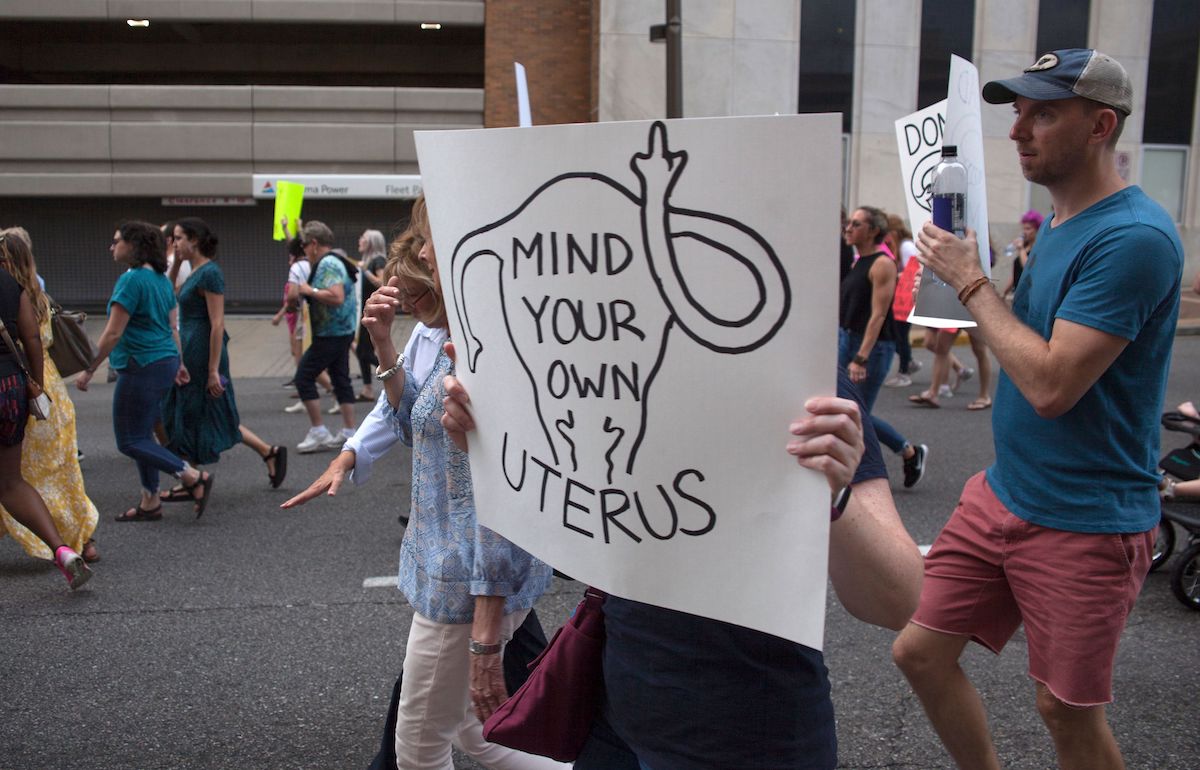Arkansas Judge Temporarily Halted Several Dangerous Anti-Abortion Laws

Welcome to The Week in Reproductive Justice, a weekly recap of all news related to the hot-button issue of what lawmakers are allowing women to do with their bodies!
Amid a week of violence, tragedy, and constant reminders of the cruelty and ineptitude of many of our elected officials, there was some important, good news coming from the state of Arkansas. This week, a federal judge has granted an injunction preventing several dangerous, anti-abortion laws from taking effect this week.
Those laws included a ban on abortion at or after 18 weeks of pregnancy, a requirement that clinics that offer abortion services have an OB/GYN board-eligible or certified practitioner (despite the lack of medical necessity for this), and another law banning abortions motivated by whether the fetus has Down syndrome.
These laws, on the surface, may not sound as extreme as the so-called “fetal heartbeat” abortion bans that would effectively ban all abortions, or total abortion bans, like the one signed into law (but yet to take effect) in Alabama, but let’s be clear: All laws restricting abortion access are extreme. No one’s experience or needs in seeking abortion services is uniform or the same; any law that makes seeking abortion difficult or even impossible is an extreme law.
Abortion is healthcare and a human right. Any law or barrier that infringes on this and puts ideology before women and pregnant people’s health and safety is dangerous, period.
Let’s start with that 18-week ban, which the judge in this case pointed out violates the guarantees of Roe v. Wade, which protects the right to abortion through the point of fetal viability—and beyond, in extreme circumstances as assessed by medical professionals. 2019 has seen a good amount of often very wrong, very dangerous, and very manipulative conversation and talking points about later abortion—often starting with the term “late-term abortion.” “Late-term abortion” is all about stigma, because there are no late-term abortions. “Late-term” refers to the third trimester of pregnancy, during which abortions simply don’t happen.
In either case, not only is later abortion fully legal, safe, and constitutional, but it often also arises in urgent, emergency, or unique and personal circumstances, be that extreme fetal anomalies, or inability to access abortion care earlier in the pregnancy, which is especially likely in the many states that maintain strict restrictions on abortion access early in and throughout the pregnancy.
As for the next law, which would require clinics offering abortion services to have an OB/GYN board-eligible or certified practitioner, this is solely about shutting down Arkansas’ last clinic that offers surgical abortion services. (The state’s one other abortion-providing clinic only offers medication abortion, which is effective through the first 10 weeks of pregnancy.) Laws like this, known as TRAP laws, are often justified by anti-abortion lawmakers through feigned safety concerns, as they aim to sell the false narrative that abortion is dangerous and complicated.
Of course, all research and the general history of modern surgical and medication abortions indicate it is neither of those things, and obstructing access to abortion results in far more and far more dangerous complications—not the least of which include higher maternal death rates—than abortion itself. So, laws like this, which would result in the forced shutdown of Arkansas’ last surgical abortion-providing clinic, are transparently about playing politics with women’s lives.
The last law, which prohibits abortions if the individual is seeking one because Down syndrome has been detected, is especially dangerous, as anti-abortion lawmakers attempt to represent themselves as compassionate and firmly against ableism—all, of course, while rejecting funding for healthcare, education, and other resources to support differently abled people. In such cases, as in all cases when fetal anomalies may be detected, the decision to have an abortion is highly persona, private, and often difficult for pregnant people and their families. It shouldn’t be politicized or legislated, and certainly, any law that opens the door for the motives of pregnant people seeking abortion to be scrutinized, and their access to abortion prohibited based on another person’s perception of their motives, is dangerous.
The judge has ruled that all three laws “cause ongoing and imminent irreparable harm to the plaintiffs and their patients” and that “the harms to women who are unable to obtain abortion care as a result of (the acts) are irreparable.” Of course, injunctions are temporary, and Arkansas’ attorney general has already filed an appeal to challenge the injunction, but U.S. District Judge Kristine Baker’s recognition of these laws as dangerous and unconstitutional offers cause for optimism.
Tune in next week to see what lawmakers will try next in their never-ending mission to derail reproductive justice!
(image: SETH HERALD/AFP/Getty Images)
Want more stories like this? Become a subscriber and support the site!
—The Mary Sue has a strict comment policy that forbids, but is not limited to, personal insults toward anyone, hate speech, and trolling.—
Have a tip we should know? tips@themarysue.com